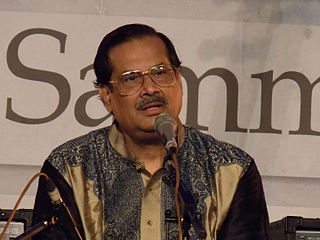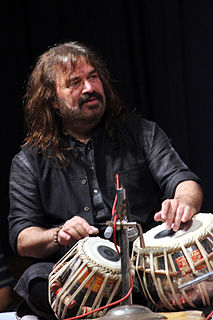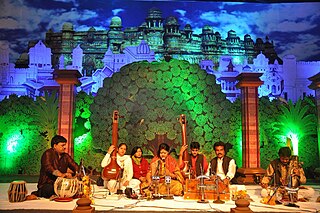Related Research Articles

Madhya Pradesh is a state in central India. Its capital is Bhopal, and the largest city is Indore, with Jabalpur, Gwalior, Ujjain, Satna, Sagar, Rewa, Khandwa, being the other major cities. Madhya Pradesh is the second largest Indian state by area and the fifth largest state by population with over 72 million residents. It borders the states of Uttar Pradesh to the northeast, Chhattisgarh to the southeast, Maharashtra to the south, Gujarat to the west, and Rajasthan to the northwest.

Bhopal is the capital city of the Indian state of Madhya Pradesh and the administrative headquarters of both Bhopal district and Bhopal division. It is known as the City of Lakes for its various natural and artificial lakes and for being one of the greenest cities in India. It is the 16th largest city in India and 131st in the world. After formation of Madhya Pradesh, the state capital Bhopal was a part of the Sehore district. It was bifurcated in 1972 and a new district Bhopal was formed.

Ravi Shankar, whose name is often preceded by the title Pandit (Master), was an Indian sitar virtuoso and a composer. He became the world's best-known exponent of North Indian classical music, in the second half of the 20th century, and influenced many other musicians throughout the world. Shankar was awarded India's highest civilian honour, the Bharat Ratna, in 1999.

Raghubir Yadav is an Indian film, stage and television actor, music composer, singer and set designer. He made his film debut with Massey Sahib (1985), in which he played the title role. He has won two International Awards as Best Actor for Massey Sahib, FIPRESCI Critic's Award, Venice Film Festival, 1986 and the IFFI Best Actor Award (Male): Silver Peacock Award at the 11th International Film Festival of India, 1987. The film also featured writer and social activist Arundhati Roy. Raghuvir Yadav studied at the National School of Drama, New Delhi until 1977.

Pandit Ajoy Chakrabarty is an Indian Hindustani classical vocalist, composer, lyricist and Gurudev. He is considered to be one of the proverbial figures of Indian classical music. He has also dominated for other major classical genres of India especially - Indore, Delhi, Jaipur, Gwalior, Agra, Kirana, Rampur and even Carnatic music in South India. He was given Padma Bhushan Award, the third highest civilian award in India in 2020.

Kailash Kher is an Indian playback singer and music composer, he sang songs with a music style influenced by Indian folk music and Sufi music. He was inspired by the classical musicians Pandit Kumar Gandharva, Pandit Hridaynath Mangeshkar, Pandit Bhimsen Joshi, and the Qawwali singer Nusrat Fateh Ali Khan.

Suresh Ishwar Wadkar is an Indian playback singer. He performs in both Hindi and Marathi films. He has sung songs in some Bhojpuri films, Odia albums and bhajans and in Konkani films. In 2020, the Government of India honoured him with the Padma Shri.

Pandit Makhanlal Chaturvedi, also called Pandit ji, was an Indian poet, writer, essayist, playwright and a journalist who is particularly remembered for his participation in India's national struggle for independence and his contribution to Chhayavaad, the Neo-romanticism movement of Hindi literature. He was awarded the first Sahitya Akademi Award in Hindi for his work Him Taringini in 1955. The Government of India awarded him the civilian honour of the Padma Bhushan in 1963.
Ustad Ghulam Fariduddin Ayaz Al-Hussaini Qawwal is a Pakistani qawwal. He belongs to the Qawwal Bachchon Ka Gharana of Delhi. He and his relatives are the flag-bearers of that school of music (gharana), which is also known by the name of the city as the Delhi gharana. He performs various genres of Hindustani classical music such as dhrupad, khayal, tarana, thumri, and dadra. Ayaz leads the qawwal party with his younger brother, Ustad Abu Muhammad.

Ram Narayan, often referred to with the title Pandit, is an Indian musician who popularised the bowed instrument sarangi as a solo concert instrument in Hindustani classical music and became the first internationally successful sarangi player.
Pandit Motiram Pandit Maniram Sangeet Samaroh is an annual Indian classical music festival held at Chowmahalla Palace in Hyderabad, India. The festival is organised by noted classical singer Pt. Jasraj in memory of his father and brother, both classical musicians. Jasraj always performs on 30 November every year, his father's death anniversary and a tribute to Jasraj’s guru, his mentor and elder brother, Maniram, who died in 1986, and Jasraj renamed the festival to include his brother's name.

Vijay Ghate is an Indian tabla player. He was awarded with "Padma Shri" award in 2014, the fourth highest civilian award by Government of India.

Maestro Bickram Ghosh is an Indian classical tabla player. He is revered globally for his dexterity on the tabla and also for being one of the pioneers of an experimental fusion music. He is an extremely successful film music director having scored for 36 feature films, one of which got him an Oscar contention. Ghosh is known to experiment and reinterpret music and culture; he dabbles in a vast repertoire of musical genres, from classical, rock, new-age, fusion to film music.

Ruhaniyat – The All India Sufi & Mystic Music Festival is a music festival held in across India. It is organised by Mumbai-based cultural organisation Banyan Tree Events between November and March every year. This Sufi festival is one of the biggest of its kind, and is held in Mumbai, Delhi, Bangalore, Chennai, Kolkata, Pune and Hyderabad. Musicians from various parts of India — sufi qawwals, mystic musicians, Kabir panthis, and Bauls — perform at the festival.

Prahlad Singh Tipaniya is an Indian folk singer who performs Kabir bhajans in the Malwi folk style from Madhya Pradesh.
Abdul Sattar Khan popularly known as Ustad Tari Khan is a Pakistani tabla player and vocalist. Tari Khan hails from the Punjab gharana and is the student of Ustad Mian Shaukat Hussain. He has been awarded with many accolades such as Taj Poshi, the Hazrat Amir Khusrow Award, as well as Pakistan's Pride of Performance Award in 2008. Tari Khan belongs to the tabla playing gharana called the Punjab gharana.

Pandit Ram Kishore Shukla was an Indian politician and an activist for Indian independence.

Tansen Samaroh or Tansen Sangeet Samaroh is celebrated every year in the month of December in Behat village of Gwalior district, Madhya Pradesh. It is a 4-day musical extravaganza. Artists and music lovers from all over the world gather here to pay tribute to the Great Indian Musical Maestro Tansen. The event is organized near the tomb of Tansen by Ustad Alauddin Khan Kala Evam Sangeet Academy, under the department of culture, Government of Madhya Pradesh. Artists from all over India are invited to deliver vocal and instrumental performances.
G. C. D. Bharti is an Indian musician known for his Kabir bhajans.

Kunji Lal Dubey was an Indian independence activist, lawyer, educationist and politician from Madhya Pradesh. He was the first vice chancellor of Rani Durgavati University and the chancellor of Nagpur University. He served as the first speaker of Madhya Pradesh Legislative Assembly in 1956, as the Finance Minister of the State in 1967 and was the president of the Inter University Board of India, Burma and Ceylon. The Government of India awarded him the third highest civilian honour of the Padma Bhushan, in 1964, for his contributions to the society. India Post issued a commemorative stamp on Dubey in 1996.
References
- ↑ "Truly divine". The Times of India . 31 March 2009. Archived from the original on 25 October 2012.
- 1 2 "Times festival gives a weekend high". The Times of India . 8 February 2009. Archived from the original on 25 October 2012.